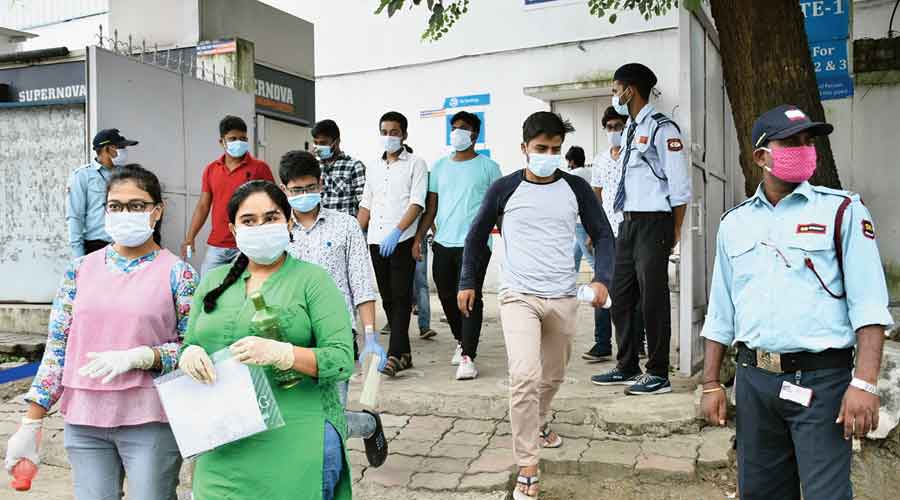Attendance in offline classes has been on the wane ever since the education department announced that college and university students could write the end-semester exams online from home, a section of teachers said.
The higher education department had on December 10 advised the state universities to conduct the odd semester (I, III and V) exams online in January. Colleges and universities have been holding in-person classes since mid-November.
The education department’s logic is that the students should be assessed online because most of the classes were held on digital platforms.
“Attendance in offline classes at the undergraduate and postgraduate level has reduced by half since the advisory was issued. It seems students were attending in-person classes (in good numbers) because they believed that they would have to write the exams offline,” said Rajyeswar Sinha, head of the Bengali department at Jadavpur University.
Classes are being held in a blended mode — a combination of in-person and online classes — so the physical distancing norm can be maintained.
Attendance has dropped in online classes as well, said Sinha.
Gandhi Kumar Kar, a former dean of science and a professor of chemistry at Presidency University, said the attendance in offline theory classes had dropped from 30 to 16 or 17.
“Some of the departments, including ours, planned to hold the semester exams offline because that would ensure transparent evaluation. But after the advisory… students are no longer eager to attend offline classes any more,” said Kar.
The two autonomous colleges under Ramakrishna Mission — Ramakrishna Mission Vidyamandira, Belur, and Ramakrishna Mission Vivekananda Centenary College, Rahara — have announced they will hold the exams offline to ensure fair evaluation.
Madhumanjari Mandal, principal of Scottish Church College, said: “Attendance in practical classes is intact. But in theory classes in non-lab subjects it is going down.”
Attendance across all departments have witnessed a fall over the past week, said Joydeep Sarangi, principal of New Alipore College.
Sankhayan Chowdhury, general secretary of the Calcutta University Teachers’ Association, wondered that if students of Class X and XII in government-aided and Delhi board schools could write in-person exams after attending classes on digital platforms since March 2020, why couldn’t students of colleges and universities in Bengal do the same?
“The decision of the government is creating a hindrance. Unless a fair assessment is held, it won't be possible for us to identify and plug the learning gaps,” he said.
